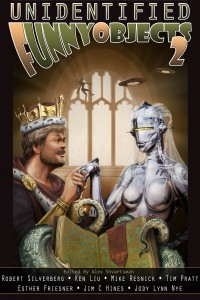It’s almost Christmas and I’m still looking at summer stories. Time to get my rear in gear. Fortunately, August had some jewels to help me deal with the frigid weather.
An apology is like giving up a little piece of yourself, so says the author of Apology Accepted by Kathryn Felice Board (debut 8/1 and reviewed by Dustin Adams). Within the story, apologies cure on a physical, as well as emotional, level but come at the cost of the giver.
But what if the giver is a therapist, and people’s pain too unbearable for her to deny them a piece of herself, an apology from her to them? Would she eventually run out? If so, what kind of person would remain?
I thoroughly enjoyed this thought-provoking, emotional story. I imagine I’ll recollect it often in the days to come.
Recommended.
Inspired by a true story, For Sale by Owner by Kate Heartfield (debut 8/2 and reviewed by Dustin Adams) tells the tale of a man, Ron, who watches out his window, toward a cliff, for would-be jumpers. In a simple fashion, Ron invites them to his nearby home for “a cup of tea and a chat.” He has saved most, and lost many, but he himself endures stubbornly, seeking the day when his replacement comes along.
The mark of an extraordinary tale is one that makes all of life’s distractions disappear and loses the reader in the telling. This is one such story. This is why we read stories. This is why fiction exists, to enlighten the human condition, and to share it with others. This story, and the true story that inspired it, are both worth reading.
What could have been “another zombie story” turned out to be quite the opposite. In Zombie Widows by Natalie Graham (debut 8/5 and reviewed by Dustin Adams) we have a woman, recently widowed, who desperately misses her husband. Because zombies are created from any remaining DNA, a house must be purged of everything that once belonged to the deceased loved one, which makes for a sad tale indeed.
An abandoned pet waits vigilantly for his family to return in Sparg by Brian Trent (debut 8/6 and reviewed by Frank D). Sparg is making breakfast. He has observed his owners carefully during their morning ritual. The batter is difficult to stir, and bowl large to hold with his tentacles, but he so desperately seeks their approval and happiness. He is doing his best for them. Now if they were only here†�
“Sparg” is the tale of loneness. He is a squid-like pet living in a low gravity environment. Clever, loyal, and eager to please, he wonders what he could have done to make them leave so suddenly as they did. The dominant member of the human family , Deepvoice , mentioned something about a war as they rushed out the door.
“Sparg” is a unique tale told from the perspective of a very bright pet. Although I was never sure of his species (squid sounds right), it is clear that he is capable of far more than any ordinary human companion. You can feel the loneliness of the abandoned family member and can sympathize with him while he attempts to right any wrong he believes he has done.
From “Old Yeller” to “Lady and the Tramp”, I have experienced many pet tales before. This one was out of this world.
Recommended.
A man foresees his future in Memories of Forgetting by Kenneth S Kao (debut 8/7 and reviewed by Frank D). Memories of a life yet to be unravel for a young man when he is approached by his future wife. The memories surface only when she is near and fade as soon as she leaves.
Intriguing tale. Not bad.
A new apprentice discovers innovative and improvement has little chance against the ingrained and familiar. The Traveling Raven Problem by Ian Watson (debut 8/8 and reviewed by Frank D) follows Igar on his first day as an indentured servant for a carrier raven service. The Corvomaester has little use for his new helper’s questions and suggestions. The service has run on the same routine for three millennia. Clearly it isn’t broke, so there is nothing that needs fixed.
“The Traveling Raven” is a tale of entrenchment. Igar’s boss is uneducated and is comfortable with his position as Corvomaester. It is clear ‘new’ ideas fall way outside his comfort zone. The story is filled with back-and-forth dialog. The Corvomaester speaks a guttural dialect , very difficult to understand. Although I found the lesson of this tale intriguing, piecing together the speech of these characters was a chore.
Just Like Clockwork by K.G. Jewell (debut 8/9 and reviewed by Frank D). Hemiz is the zookeeper of a clockwork zoo. His animals are all mechanical works of dials, springs, and gears , except for the only Galactic Tech piece, the Shurilian lion. The lion is supposed to be indisputably accurate, so when its roar is slightly off in the zoo’s show, the perfectionist zookeeper won’t rest until he finds out why.
“Just Like Clockwork” is a sci-fi physics mystery. Earthquakes have plagued the technologically isolated planet of Krinnia ever since the Shurilian built their space elevator. The Shurilians have said their elevator has nothing to do with the quakes, and its lion is in tune with the planets rotation and cannot possibly be malfunctioning. Hemiz is sure all his clockwork animals are functioning as designed, and finds it unlikely his zoo animals couldn’t all be off at the same time. He has a theory, a theory that could prove dire for his world.
This story has a resolution I found cunning but the premise of two owners of a novelty attraction solving it I found difficult to believe. The villain of this piece was cut from the same cloth as a James Bond antagonist, foolishly revealing their plans for no good reason other to gloat.
A patient doesn’t know if he’s coming or going in Hiking in My Head by Gareth D Jones (debut 8/12 and reviewed by Frank D). The protagonist is in a mental hospital, but doesn’t know why. He sees people in his head, yet cannot remember who they are or who he is. The doctor says he is cured but his brain doesn’t know it yet.
“Hiking” is a story based on a theory I’ve never heard of before, where some dreams are influenced by outside events are memories run in reverse. An odd tale I had to read twice to partially understand it.
Explorers find the edge of the world and discover what lies below. In Nova Verba, Mundus Novus by Ken Liu (debut 8/13 and reviewed by Frank D) the crew of the Sesquipedilian brave the Atlantean Ocean, and with the aid of an aerostat, float over its side. The world is as he Hindu’s describe it , a flat disc resting on the back of an elephant, who stands on a stack of turtles. The lower they descend, the simpler they become. What changes are in store for this brave crew?
“Nova” is a lighthearted, yet clever, work of flash from one of the brightest writers of our time.
A curse afflicts a bride in Seaweed by Mari Ness (debut 8/14 and reviewed by Frank D). The woman in this tale awakes in a blanket of seaweed every morning. Despite the best efforts of many in the kingdom, nothing can be done to halt this curse. She (and her husband) know from whence this curse came, and she is determined that her husband takes responsibility for his part.
This is an odd tale and I’m not quite sure if I got the point of it.
A depressed and lonely girl finds solace and companionship In Dreams by Jeremy Erman (debut 8/15 and reviewed by Frank D). The protagonist dreams of a place with purple skies every night. It is a place for people like herself, withdrawn and shunned. She meets a boy, establishes a relationship. Like romances in real life, the dream and their feelings for each other fade, but she does not leave the surreal place empty handed.
This brief tale has a twist that many readers may have missed. So subtle.
A man hired to find the meaning of life for the dying searches for the meaning of living in The Black Bough by Conor Powers-Smith (debut 8/16 and reviewed by Frank D). Louis Gibbs is a dreamer. He absorbs the complete memories of his clients , every second of their life , and reflects upon it to give them the answers that always eluded them. Louis has the memories of sixteen people in his head when he absorbed his latest client’s memories. Henry is a widower afflicted with a terminal disease. Before Louis can finish mulling over Henry’s past, Henry dies. It has happened before, but while contemplating his client’s memories, sadness overtakes him with the knowledge of what Henry children will think of their fathers passing.
“Black Bough” is a tale of reflection. The middle-aged Louis has little trouble separating the memories of clients twice his age from his own. He managed to perform his job with a detached distance surgeons need to do to be effective. Henry’s long but common life becomes a tipping point for Louis on the heels of tragic news , his leukemia has returned.
This protagonist in Powers-Smith’s tale is a man who is suddenly struck with issues when he was absent of them before. His news has left Philosophy major emotively empty. Searching for his own meaning in life would be incomplete. His business, with its abundance of memory files, can offer so much more.
I contemplated why Louis would choose the course of actions which led to the finale of this piece. Without spoiling the ending for you (if I haven’t already), I can only assume he wasn’t really searching for an answer. Rather, he just became overwhelmed with a reality he couldn’t handle. Intriguing story but I’m unsure of its meaning.
An unassuming sidekick receives his just rewards in Recognition by Bill Glover (debut 8/19 and reviewed by Frank D). The protagonist is a loyal assistant to a superhero, the Checked Avenger. He has an inconspicuous nature for a power – others fail to notice him when he is present. Despite his unpretentious gift, he has never failed to miss the superhero award banquet. It is quite unexpected when his boss receives an award, but what happens next surprises the protagonist most of all.
Liked the moral of this tale but I do wonder, considering his power, how did the protagonist manage to get invited to the banquet in the first place?
A mailman falls for an extrinsic, yet reclusive, mysterious woman in The Matchmaker by Sara Puls (debut 8/20 and reviewed by Frank D). Don has hand delivered packages to Ruthetta for thirty years. Always marked fragile, Ruthetta has hinted to Don that they are filled with fairy tale characters. Don has always been drawn to the bubbly but alone woman, but never had the courage to tell her how he felt. As the frequency begins to slow to a trickle, then not at all, Don worries that he has waited too long to express himself.
“The Matchmaker” is a two tiered love story. Ruthetta cares for fairy tale creatures, doing her best to find them someone that will care for them. Don worries that poor Ruthetta never bothered to think of herself. Sweet little story.
A ghostly alien wonders about the strange orbs that circle the stars in An Impossible Matter by Sylvia Anna Hiven (debut 8/21 and reviewed by Frank D). Thorn is drawn to the 3rd orb an alluring blue and green ball of matter circling a star. The Grand Patri tells his inquisitive underling that nothing of importance can exist on such things.
“An Impossible Matter” is a short tale told from a unique perspective. A new story from a well-worn idea.
A family visits Granny in Tomorrow is Winter by Callie Snow (debut 8/22 and reviewed by Frank D). In this dystopian future, the protagonist is a little girl accompanying her parents to a retirement home. The first day of winter is coming. The day is a holiday, of a sort, but is celebrated as if the cold that marks the season rarely happens anymore.
“Tomorrow is Winter” has a storyline that is half metaphor. The story is told from a growing child who sees the hypocrisy of the celebration. Her town is covered in a dome to protect it from the pollution outside, making observing any changes of seasons irrelevant. An intriguing angle to this tale is Isabella’s (protagonist) corrective protocols to monitor her behavior. She is equipped with some sort of Pavlov-ian device that shocks her for her social faux paus. I would have liked to know more of this subplot. “Tomorrow” had some intriguing aspects but their details were elusive. A deeper story would have been preferable.
A heartless girl contemplates her cold demeanor in A Change of Heart by Rachel Halpern (debut 8/23 and reviewed by Frank D). Clara is an unusual child. She is well aware that she lacks the emotional peaks and valleys she sees in others. She has learned to mimic feelings, mindful of responsive cues to simulate face expressions and appropriate verbal responses to emotive situations. Faking it hasn’t left Clara satisfied, and she is wondering if the empty space in her chest may have something to do with her wooden condition.
“A Change of Heart” is a Tin Man tale. Clara’s parents fill in the pieces for her when they show her a wooden box and explain of the unusual procedure Dr. Annin preformed that saved her life at a young age. Her heart was dying, so the doctor removed it and stored it in the box, where it still beats. As long as it remains in the box, Clara is safe and immortal, but Clara knows that a life without a beating heart is not a life at all.
I have mixed emotions about “A Change of Heart”. Although the story is a solid one, I felt it was longer than it needed to be. The narrative seemed to drag, as if the author had trouble telling an emotional tale through the eyes of a protagonist who lack emotions. The result was too much backhanded explanations, a simile or two too many, and long stretches of internal contemplations. I felt the tale could have been stronger as a short-short, or maybe, as a work of flash. Nevertheless, the concept was an interesting one. I can see why the editors decided to publish.
Friendship is the theme of A Crown of Woven Nails by Caroline M. Yoachim (debut 8/26 and reviewed by Frank D). The protagonist is a little girl who makes friends with a shape shifting alien. The Splitters came to Earth to help rebuild civilization after an atomic war. Gratitude evolves into suspicion as fear compels humanity to imprison the Splitters. The little girl remembers her friend, Cobalt, and tries to rekindle their friendship years later after the aliens are free, but people change, as do the aliens who change shape at will.
“A Crown” revolves around the memory of gift the protagonist receives from Cobalt when they were adolescents, a crown Cobalt transforms from discarded nails. The story is much like any story could tell from their own experiences , a memory of a long ago friend from an innocent time. Although the shape-shifting aliens gave it a new flavor, the story’s theme I found less than remarkable.
An unwanted guest has a habit of crashing weddings in Three Weddings and an Objection by M. M. Domaille (debut 8/27 and reviewed by Frank D). An off world ice fishing community celebration is interrupted by a defense probe, ruining a blessed couples special day. The guests all flee before the murderous probe mistakes them for a rebel assembly. Two more weddings are attempted but the probe still appears each time. Will love conquer all?
This tale set in an isolated setting has a usual angle to it. There is a slight twist to the story, and a slight appeal to the tale.
Psychic abilities ruin a love affair in Love is Orange, Love is Red by Eric James Stone (debut 8/28 and reviewed by Frank D). A sickness afflicts a couple that grants them the ability to sense the emotions of each other. Disappoint is the result when they discover their feelings don’t run at equal depths.
Mr. Stone explores the consequences of knowing exactly how another feels about you. The protagonist attempts to explain his mundane emotional state for his lover with an analogy of viewing colors differently. Intriguing tale but this passion driven story is told from an emotional distance. It loses its luster in the processes, giving it a clinical feel to it.
Flip Side by Chip Houser (debut 8/29 and reviewed by James Hanzelka)
The woman sat beside the road in her tattered dress. She argued with herself about the past. Was the accident her fault? Was she driving too fast? Or was it Tommy’s for not watching where he was going? She throws her empty bottle in frustration. The old man eases his way across the street, dodging the crumbling asphalt and broken glass. Standing next to her he pulls out a bottle and holds it out to her. “Whiskey?” she asks. “Something better,” he replies. She drains the bottle, choking on the sickly sweet liquid. “You’ve poisoned me!” she cries. “No I’ve set you free,” he replies. “It will be better this time.”
“Flip Side” is a story about what could have been and what you would give to set the past right. The author deftly unfolds the tragedy that stunted this woman’s life, and shows us that there are worse things than death. He then offers us hope that someone out there will give us a second chance. Someone that will give us back the chance to make the right choice. I liked how well he did this and still found the room to paint such a vivid picture of the participants. This one is worth the read.
I’ll Never Find Another You by C J Paget (debut 8/30 and reviewed by James Hanzelka)
He first sees her at the party. She’s dressed like a genie. There’s something familiar about her, but he can’t quite place it. He works his way over to her and they exchange banter, agreeing to flee the boredom of the party. She retrieves her coat from the Jag and follows him to his Audi. “Nice car,” he says. “It’s stolen,” she replies. As they drive she asks about finance, and quantum mechanics. At his place he opens the gate and watches her face, the disappointment is obvious. “Not what you expected?” he asks. She shakes her head like it doesn’t belong there. “Now what’s this all about he asks?” “Quantum Mechanics,” she replies.
This story meanders along the trail of alternate universes and what-could-have-beens, ending in the only way it could. The author takes their time laying out the premise, which doesn’t help in my mind. Once you get to the end you’ll find you don’t care much for either of the two characters that populate the story. It has some interesting premises, but the inherent flaws in the characters are just too much to get past. I found myself hoping for the end to come, and it didn’t come fast enough.
Sound Check
A few reviews ago, I suggested the editors take a look into the audio market to help get their vast library out there. They responded to me by offering me the audio editor’s job. After sending several unanswered queries to the largest audio publishers out there, I can confidently confirm that I suck as an audio editor. I am clearly out of league but do firmly believe that an audio version of Not Just Rockets and Robots would be a hit. So†�.
I am asking for help, advice, a shovel to help me dig out of this hole that I am in, to get Daily SF on its rightful place in the audio section of literature. Anyone got anything for me?
 Frank Dutkiewicz needs no introduction.
Frank Dutkiewicz needs no introduction.






 The SF award nomination season is here. The Nebulas (the writer-voted award) have been open for a while and close in February. The Hugos (the fan-voted award) opened on January first. Both sets cover works published in the 2012 calendar year. About this time of year, every writer and their dog posts a list of their eligible works.
The SF award nomination season is here. The Nebulas (the writer-voted award) have been open for a while and close in February. The Hugos (the fan-voted award) opened on January first. Both sets cover works published in the 2012 calendar year. About this time of year, every writer and their dog posts a list of their eligible works.
